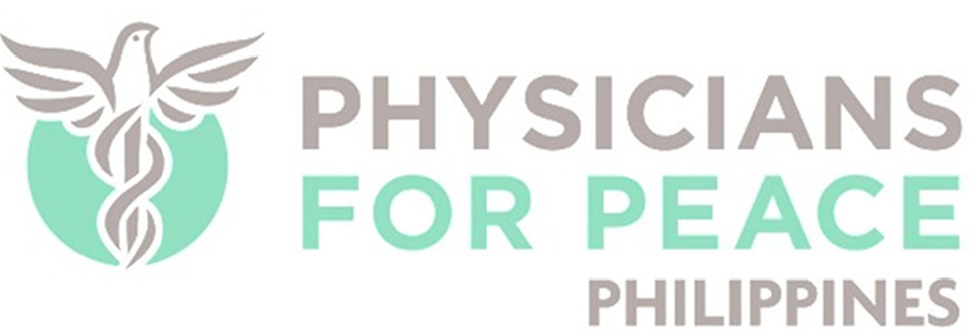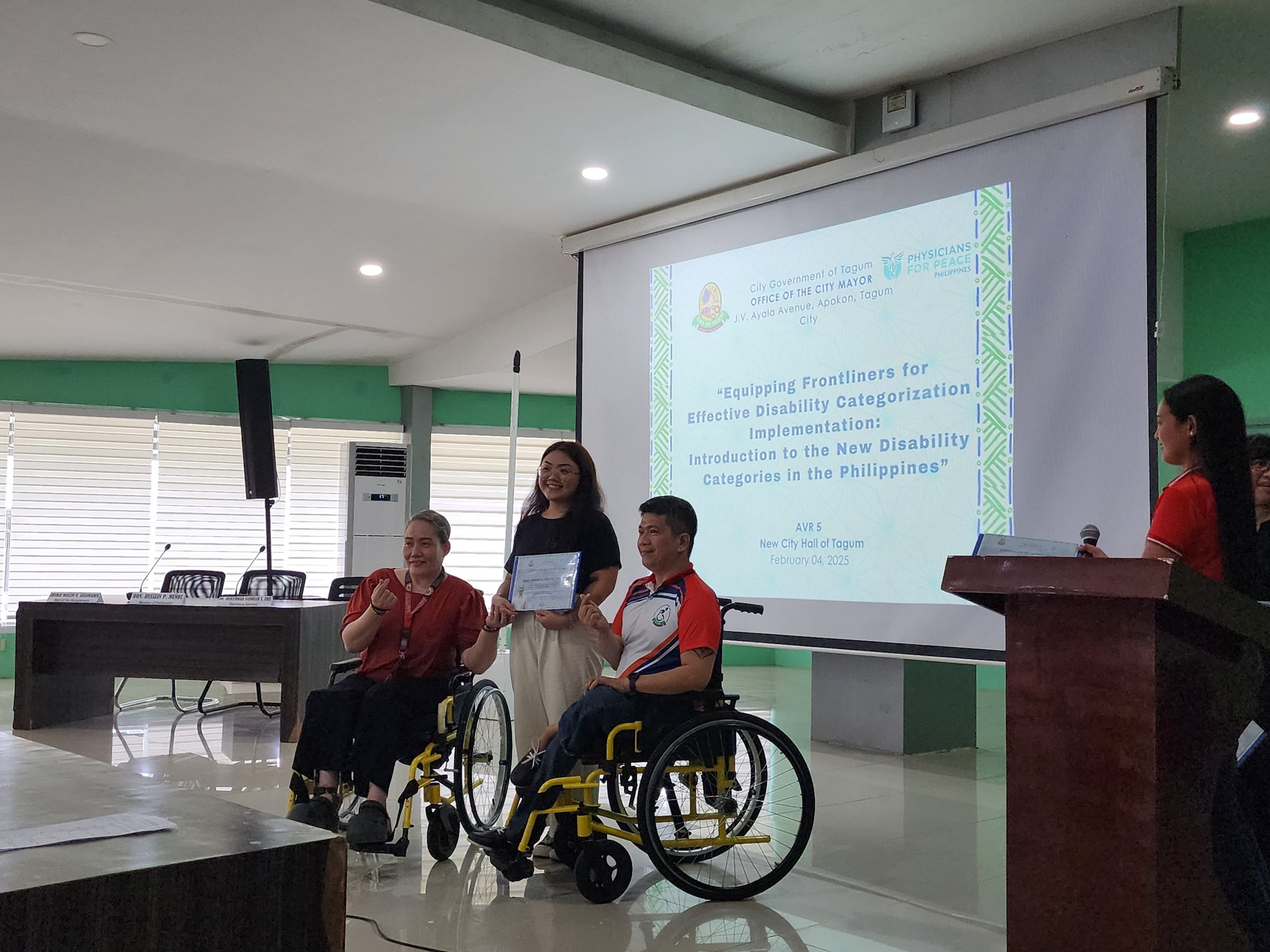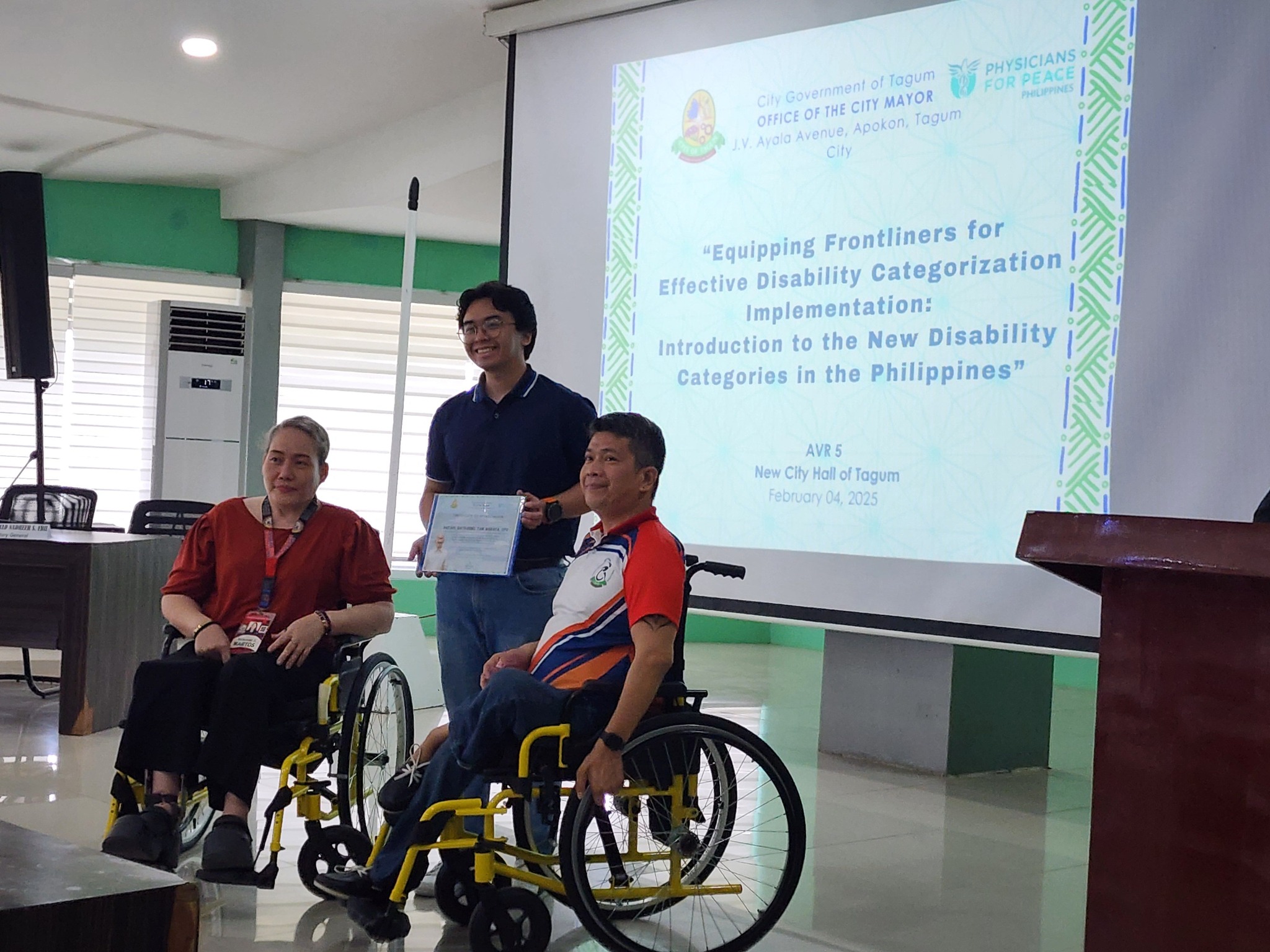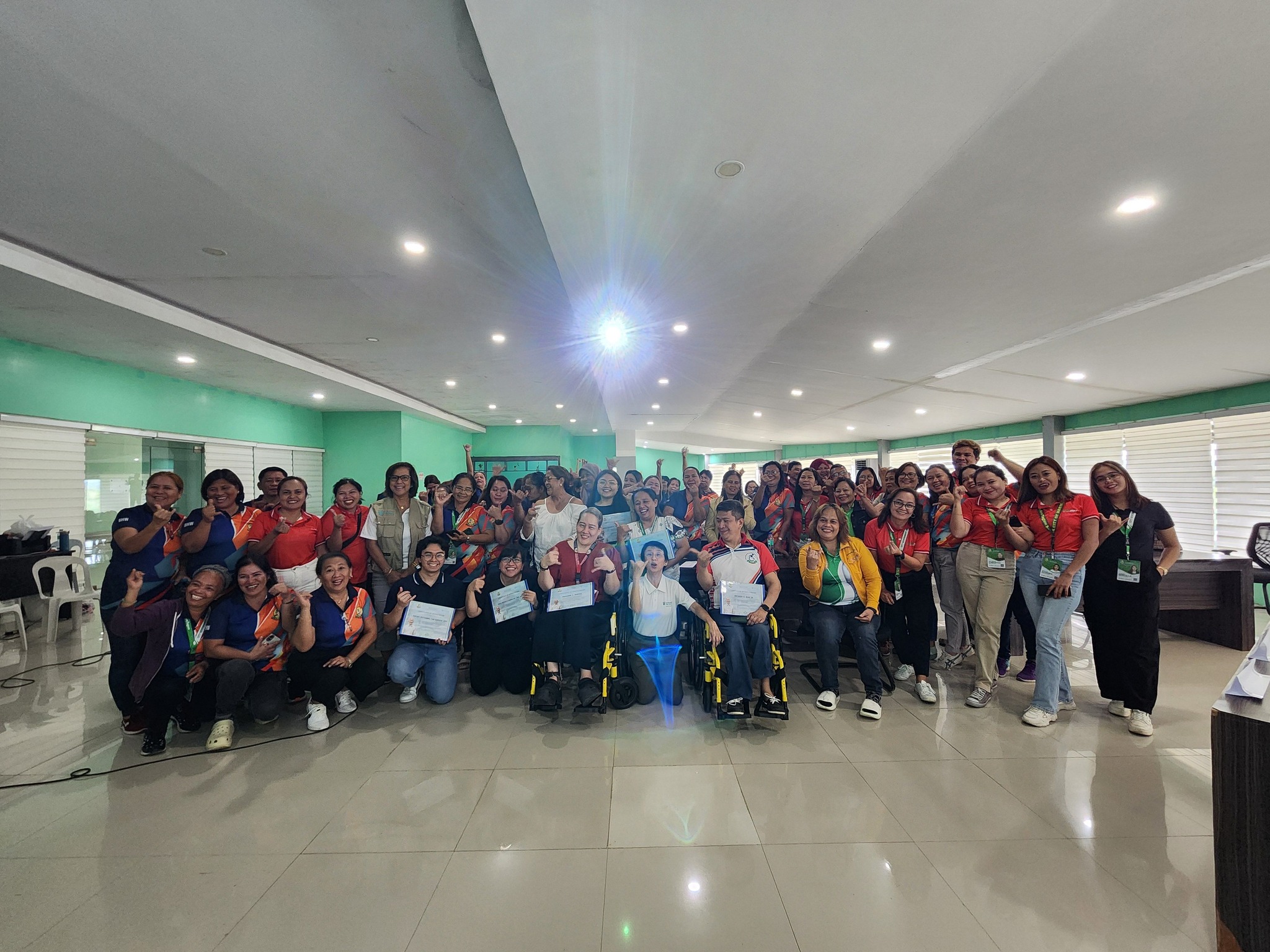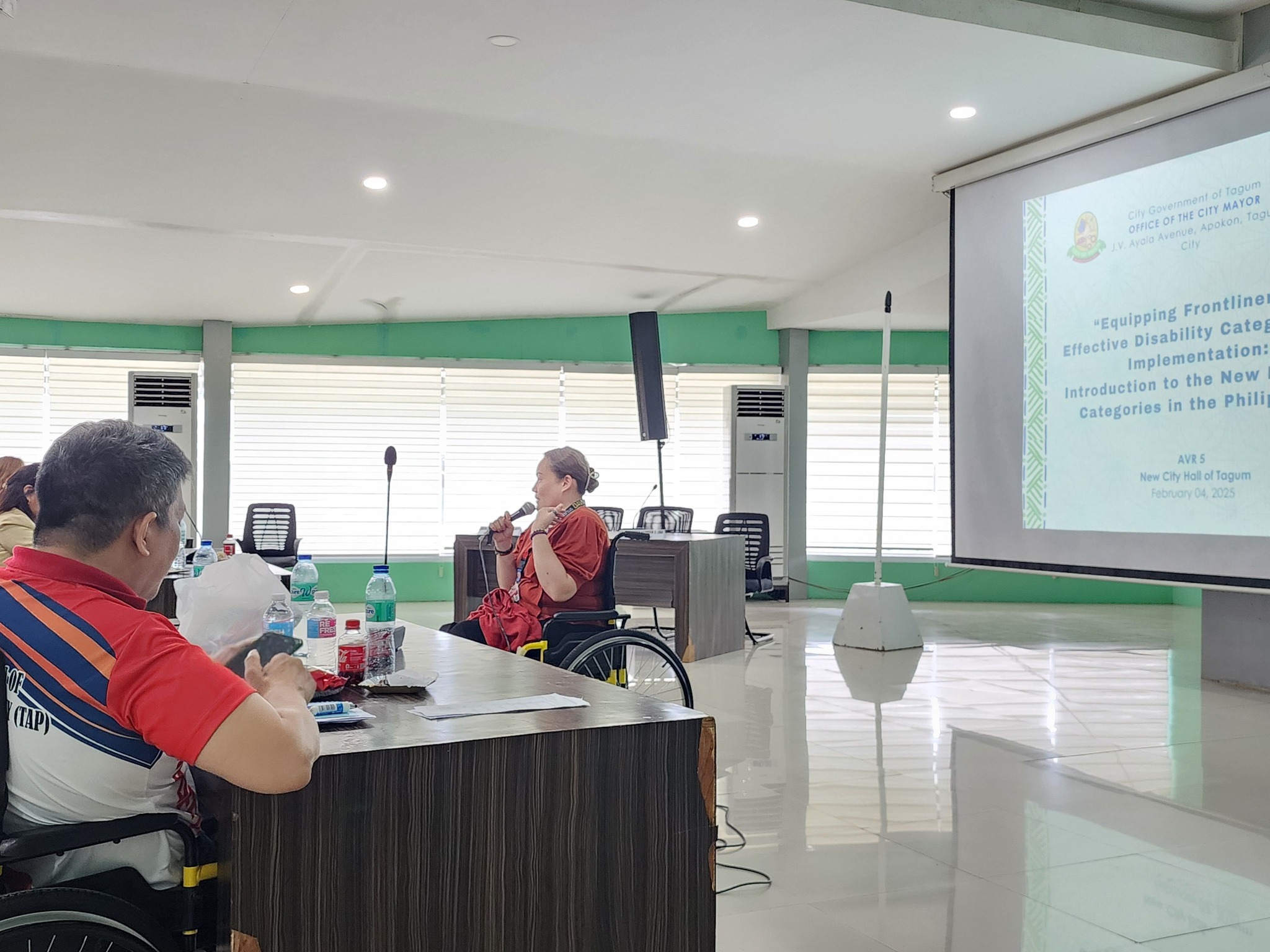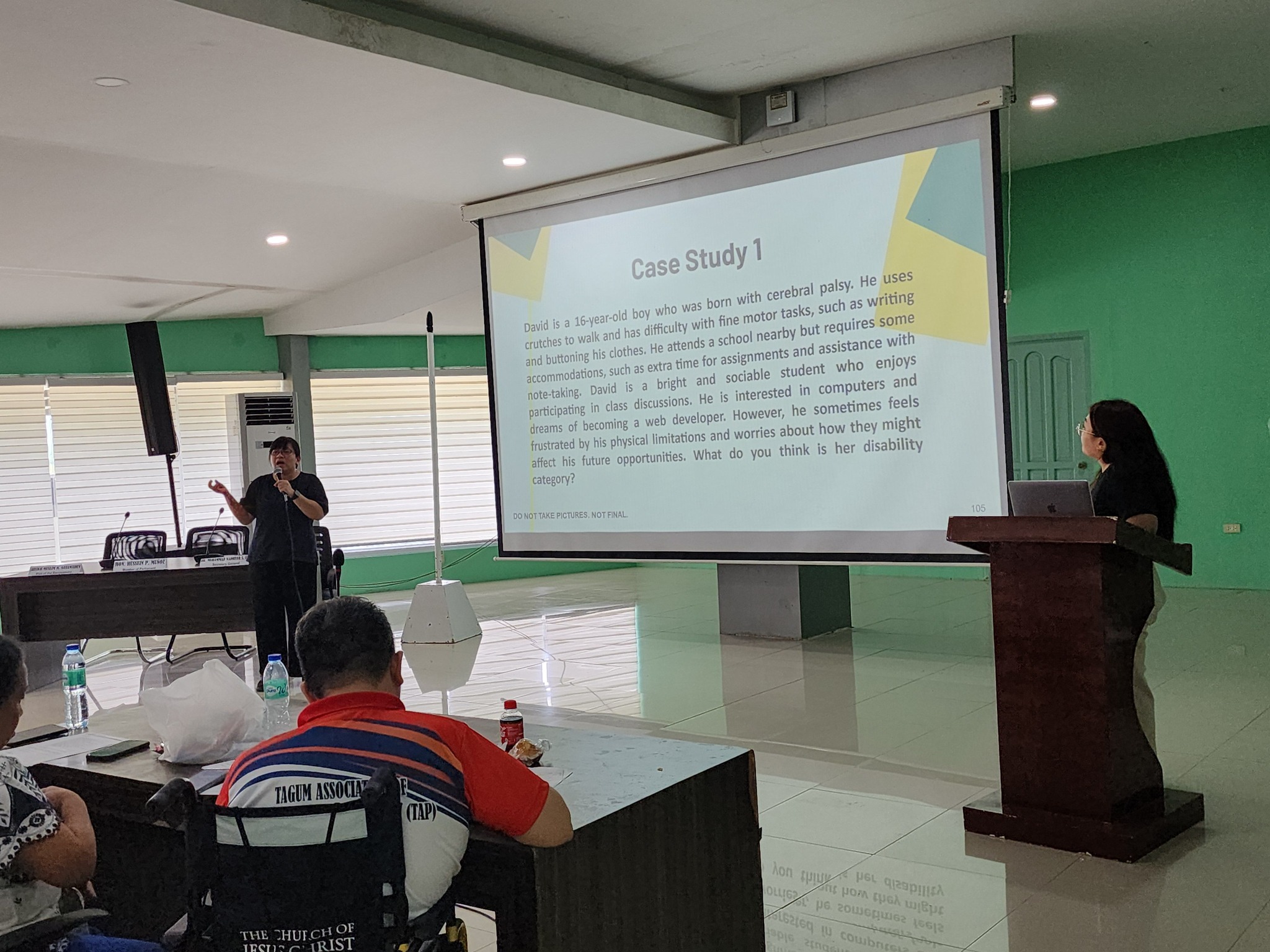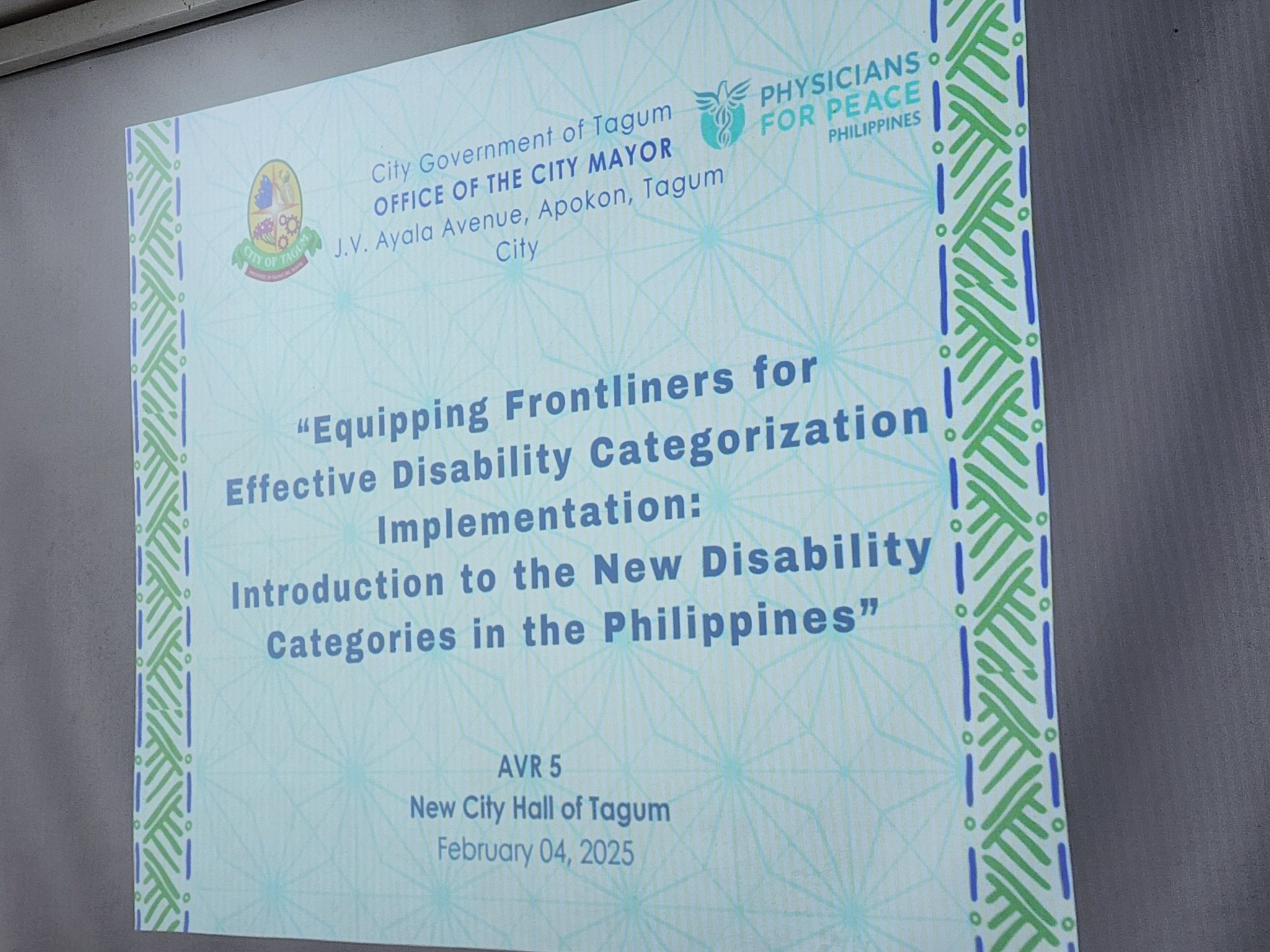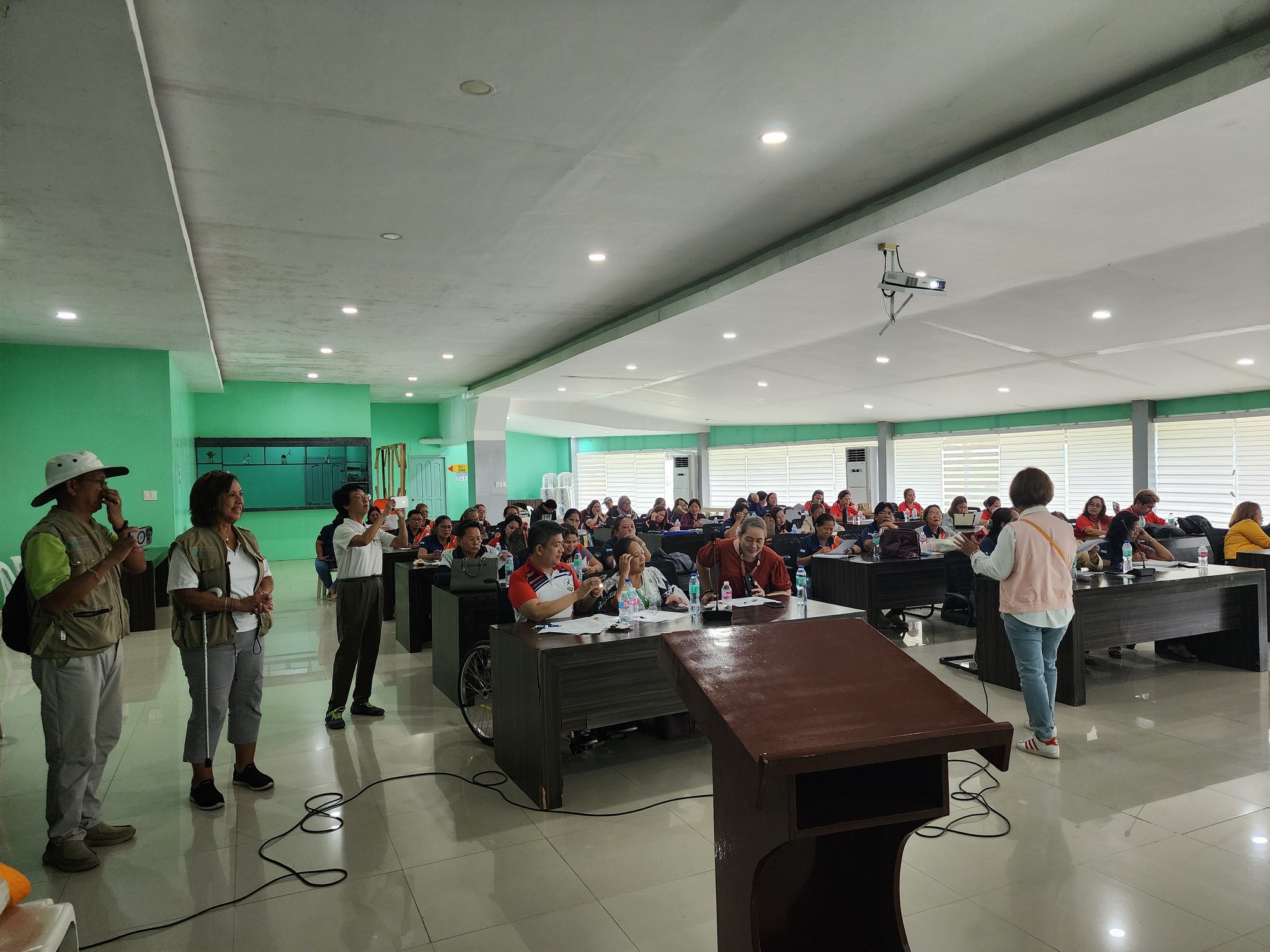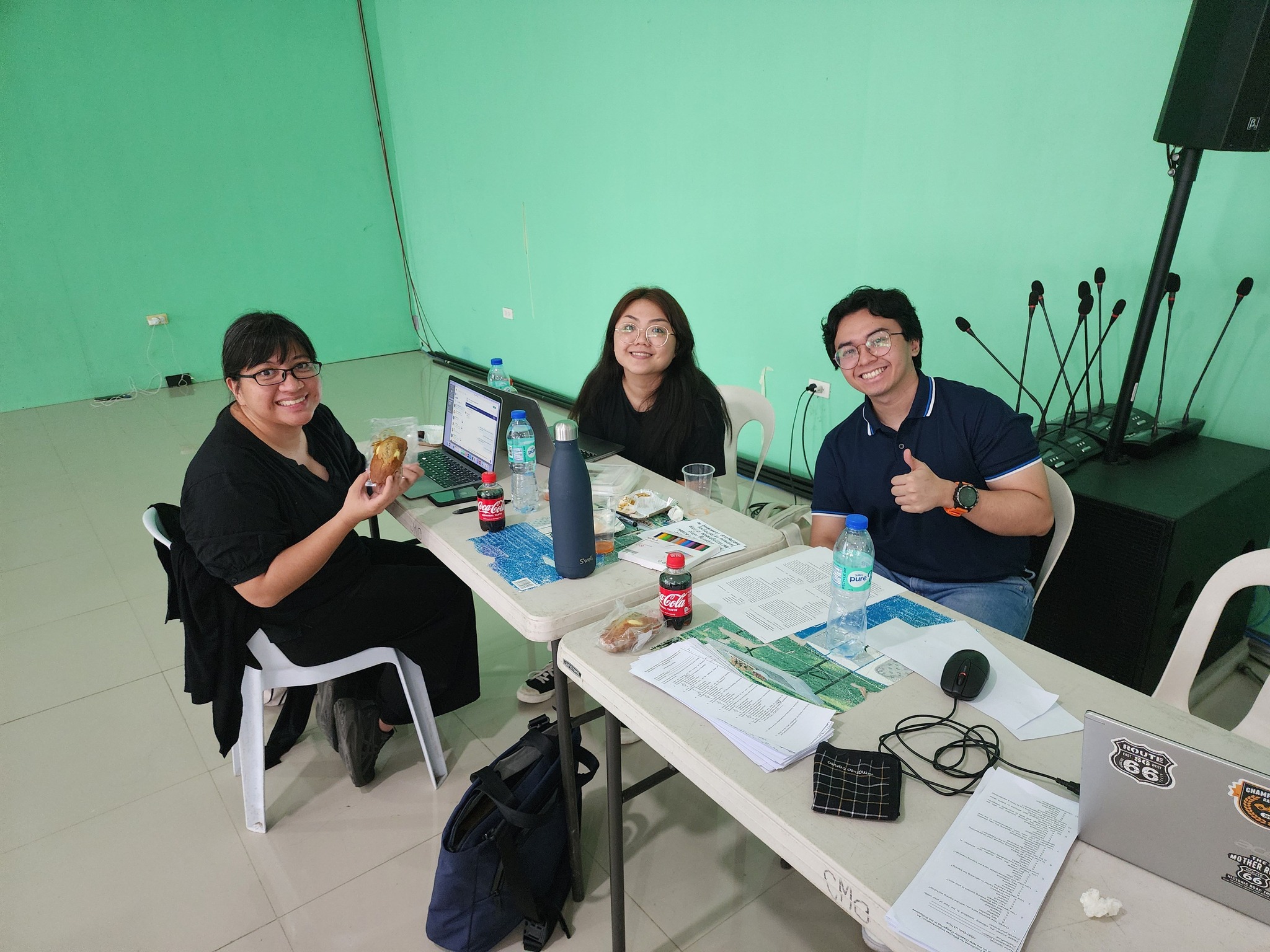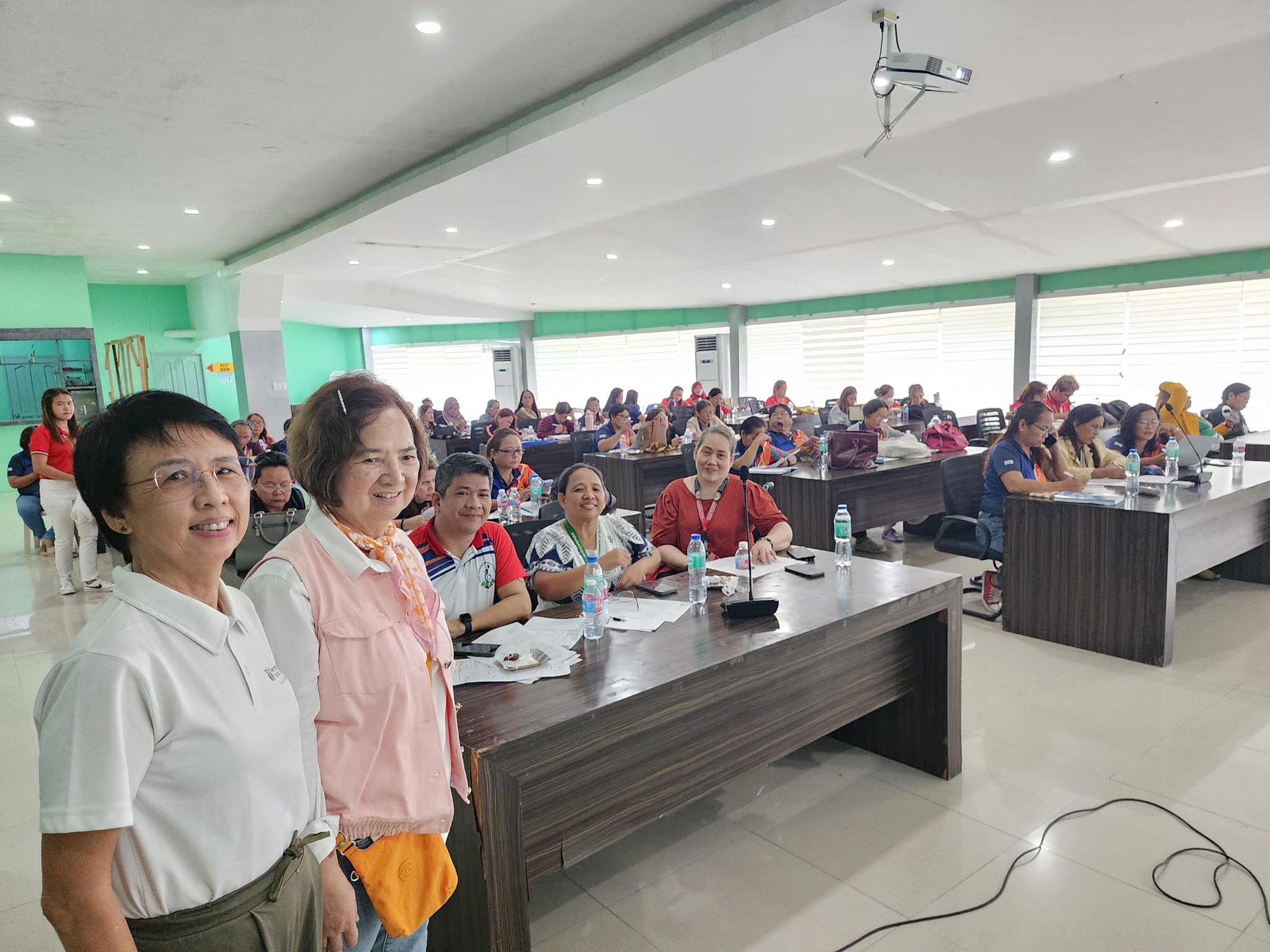Tagum City, Davao del Norte – Physicians for Peace – Philippines (PFPP) recently conducted a crucial workshop, focusing on the newly updated disability categories in the Philippines, specifically tailored for the local government unit (LGU) of Tagum.
The participants, a diverse group of barangay health workers, personnel from the Persons with Disability Affairs Office (PDAO), and health staff, gathered to delve into the nuances of these new classifications. This wasn’t merely about memorizing a list; it was about understanding the lived experiences behind each category, and how to effectively support individuals with diverse needs.
“We often encounter individuals with disabilities in our daily work,” shared one barangay health worker, “but sometimes, we lack the specific knowledge to provide the right kind of assistance. This training is invaluable.”
The workshop, held during PFPP’s healthcare mission in Tagum, aimed to bridge this gap. Experts from PFPP led interactive sessions, fostering open discussions and practical exercises. The focus wasn’t just on the “what” of the new categories, but the “how” – how to communicate effectively, how to provide appropriate care, and how to advocate for the rights of persons with disabilities.
“The new disability categories reflect a more holistic understanding of disability,” explained a facilitator from PFPP. “It moves beyond a purely medical model and incorporates social and environmental factors. This shift requires a change in perspective, and that’s what we’re aiming to achieve.”
The training covered the intricacies of the new classifications, which include psychosocial disabilities, chronic illnesses, and developmental disabilities, alongside the more traditional categories. Participants learned about the specific needs and challenges associated with each category, and how to tailor their services accordingly.
The impact of the workshop was palpable. Participants shared stories, asked thoughtful questions, and engaged in lively discussions, demonstrating a genuine desire to improve their service delivery.
“This training has opened my eyes,” said a staff member from the PDAO. “I now understand the importance of person-centered care and the need to move away from a one-size-fits-all approach.”
This vital initiative, aimed at empowering the Tagum LGU, was generously supported by PFPP Ambassadors, Romy and Mona Buerano and their friends from New Jersey, with the crucial local coordination and support of Mayor Uy and Alma Uy. Their combined dedication and resources enabled the workshop to reach frontline workers, ensuring that the updated disability classifications are effectively implemented within the community. This collaborative effort emphasizes the power of partnerships in strengthening local capacity and fostering inclusive practices.
The collaboration between PfP-PH and the LGU of Tagum highlights the importance of partnerships in building inclusive communities. By equipping frontline workers with the necessary knowledge and skills, Tagum is taking a significant step towards ensuring that persons with disabilities receive the support they need to live full and meaningful lives.
As the participants left the workshop, there was a sense of renewed purpose. They were no longer just health workers or government employees; they were advocates, allies, and agents of change. They were equipped to see beyond the disability, and to truly see the person.
